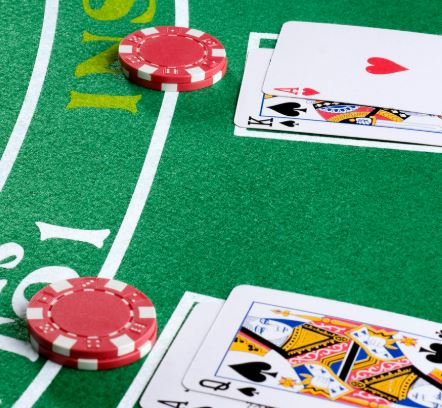What Happens If Two Players Get 21 in Blackjack? Rules Explained
Blackjack is one of the most widely played card games in the UK, both online and in casinos. Certain situations can be unclear for new players, such as what happens when more than one person reaches 21 in the same round.
The outcome depends on how hands are evaluated and the rules applied at a particular table. Understanding how the dealer compares hands provides insight into what may occur during a round.
If you want a clear explanation of these situations without the usual complicated jargon, read on.
How Does Blackjack Work When More Than One Player Has 21?

In blackjack, the goal is to reach a hand total as close to 21 as possible without exceeding it. If two or more players reach 21 in the same round, it is treated in the same way as any other hand.
Each hand is resolved individually against the dealer. A hand of 21 formed with an Ace and a ten-value card is referred to as a blackjack. A hand of 21 using three or more cards is considered a standard 21.
Different blackjack versions may have slightly different rules for ties and payouts. The specific treatment of each hand is usually displayed in the game’s rules or paytable.
If you do decide to try your hand at blackjack, remember to do so responsibly and within your means; never wager more than you can afford to lose.
What Happens If You and the Dealer Both Get 21?
The outcome depends on the type of 21 for both you and the dealer. If both have a two-card blackjack, the hand is generally considered a push, and your stake is returned.
If you have a standard 21 with three or more cards and the dealer has a blackjack, your hand is usually lost. Conversely, if you have a blackjack and the dealer reaches 21 using additional cards, your blackjack typically wins. If both you and the dealer have 21 made with three or more cards, it is usually treated as a push.
Casinos regulated by the UK Gambling Commission (UKGC) provide clear information about these outcomes. Differences between tables are usually described in the game details.
Does a Player Get Paid If Two Players Reach 21 Together?
Yes. Each player’s hand is resolved individually against the dealer. Your outcome is not affected by the results of other players’ hands.
A standard 21 is usually paid at even money (1:1). A blackjack, which is a two-card 21, is commonly paid at 3:2, unless the dealer also has a blackjack, in which case the original stake is returned. If both the player and the dealer have a standard 21, this is generally treated as a push.
The paytable or rules section for each game variant provides details on specific payouts and how ties are handled.
Play Slots & Online Casino Games
Blackjack Rules for Multiple Players at the Same Table
Several players can take part at the same table, either online or in a live environment. Each hand is assessed against the dealer’s total, rather than against the hands of other players.
The dealer resolves each hand one at a time. Decisions to hit, stand, double down, or split apply only to your own hand. Consequently, two players might both reach 21 but have different results depending on the dealer’s hand.
Push Versus Win: What’s the Difference?
A win happens when your hand total is higher than the dealer’s. In most cases, standard wins are paid at 1:1, meaning you get back an amount equal to your original stake. A two-card blackjack is usually paid at 3:2.
A push happens when your hand total matches the dealer’s. In this case, your stake is returned and no extra winnings are added. Each game’s paytable explains how wins and pushes are handled.
Why Understanding Blackjack Payouts Matters
Payouts determine how your stake is returned after a hand. A blackjack often pays more than a standard 21, while a regular win usually pays even money.
Different tables and game variants can offer different payout structures. The paytable and rules section for each game provide the most accurate information about how outcomes are handled.
It is important to remember that blackjack is a game of chance and outcomes vary. Playing within your means could be a good idea.
**The information provided in this blog is intended for educational purposes and should not be construed as betting advice or a guarantee of success. Always gamble responsibly.
*All values (Bet Levels, Maximum Wins etc.) mentioned in relation to these games are subject to change at any time. Game features mentioned may not be available in some jurisdictions.





























































